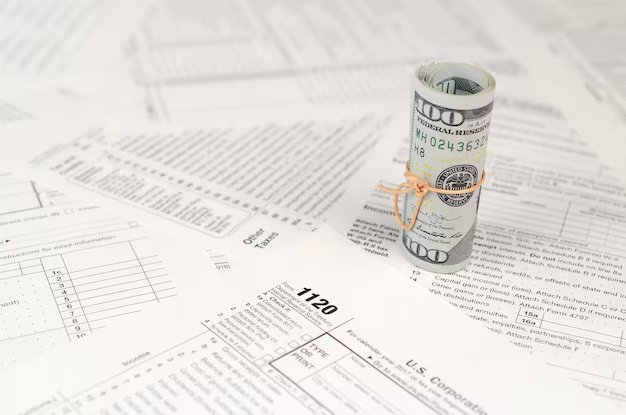Exploring New York's Tax Landscape: What You Need to Know
Living in or planning a move to New York? One of the primary considerations is understanding the state's tax landscape. New York's taxes can be quite complex, encompassing various forms that impact individuals, families, and businesses alike. Whether you're concerned about income taxes, sales taxes, or property taxes, this guide will unravel the intricacies and provide you with a comprehensive overview that can help you navigate New York's tax system with confidence.
Understanding New York's Income Tax
New York State imposes a progressive income tax, meaning that the tax rate increases as your income level rises. This system is designed to ensure that taxpayers contribute to state funds according to their ability to pay.
Tax Brackets and Rates
For the 2023 tax year, New York's income tax rates range from 4% to 10.9%. Here's a simplified breakdown:
- Income below $8,500: 4%
- Income from $8,501 to $11,700: 4.5%
- Income from $11,701 to $13,900: 5.25%
- Income from $13,901 to $21,400: 5.9%
- Income from $21,401 to $80,650: 6.09%
- Income from $80,651 to $215,400: 6.41%
- Income from $215,401 to $1,077,550: 6.85%
- Income over $1,077,550: 10.9%
It's important to note that New York City and Yonkers impose their own additional income taxes on residents, making it crucial to factor in these extra costs if you live in or near these areas.
Deductions and Credits
New York offers various deductions and credits that can significantly lower your tax liability. Key tax benefits include:
- Standard Deduction: Available for those who don't itemize deductions. The amount varies depending on filing status.
- Child and Dependent Care Credit: Assists families with childcare expenses.
- Earned Income Credit: A benefit for working individuals with low to moderate income.
Navigating Sales Tax in New York
New York's sales tax is another pivotal aspect of its tax system. Understanding it can help you better manage your expenditures.
Sales Tax Rates
The state sales tax stands at 4%, but when local taxes are factored in, the total sales tax rate can reach up to 8.875% in some areas, like New York City. Be sure to keep in mind that local rates can vary widely.
Exemptions
Certain essential items are exempt from sales tax or taxed at a lower rate to alleviate the financial burden on consumers:
- Clothing and footwear: Exempt from state sales tax if sold for less than $110.
- Groceries: Generally exempt from sales tax.
- Prescription drugs: Fully exempt.
Summary: Handy Tips for New York Taxes 💡
- Assess your bracket: Know your income bracket for precise planning.
- Explore deductions: Utilize available credits and deductions to reduce taxes.
- Budget for sales tax: Account for local rates when budgeting for purchases.
Property Tax Insights
New York's property tax system is another key area that impacts homeowners and renters.
Calculating Property Tax
Property taxes in New York are determined locally, based on the assessed value of a property and the prevailing tax rate in the municipality. Rates can vary significantly across different localities, so it’s essential to familiarize yourself with local regulations.
Exemptions and Rebates
Several programs provide relief from property taxes:
- STAR Program (School Tax Relief): Provides a property tax rebate for homeowners.
- Senior Citizen Exemption: Offers reductions for qualifying senior citizens.
Business Taxes in New York
Operating a business in New York adds another layer of tax considerations.
Corporate Taxes
New York imposes a corporate tax on business income, with rates varying by business type and income levels. Key taxes include:
- Business Corporation Franchise Tax: Based on net income.
- Metropolitan Commuter Transportation Mobility Tax (MCTMT): Applicable to businesses operating in the Metropolitan Transportation Region.
Sales and Use Tax
Businesses are also responsible for collecting sales tax. Compliance involves understanding the specifics of taxable sales, using appropriate rates, and timely filing.
Tax Planning Strategies
Successfully managing your taxes in New York involves strategic planning and staying informed about current rates and potential changes. Here are practical steps:
- Consult a Professional: Tax laws can be complex. Partnering with a CPA or tax professional can provide personalized advice.
- Monitor Legislative Updates: Tax regulations can change. Keep an eye on legislative developments in New York.
- Leverage Technology: Use tax software for accurate filing and deductions.
Visual Quick Reference: Key Tax Rates 📊
| Tax Type | Rate or Summary |
|---|---|
| Income Tax | 4% - 10.9% (Progressive based on income) |
| Sales Tax | 4% state base, up to 8.875% combined with local rates |
| Property Tax | Varies by locality, based on assessed property value |
| Corporate Tax | Variable; includes franchise and MCTMT |
Maximizing Your Tax Benefits
Finally, optimizing your tax situation in New York involves understanding your options and how they align with your financial and personal goals.
- Education Savings: Consider New York's 529 College Savings Program for tax-advantaged savings.
- Retirement Contributions: Contributions to retirement accounts can defer and reduce taxable income.
- Charitable Contributions: Charitable donations can provide deductions on your state tax.
Bringing It All Together
Understanding New York's tax landscape is crucial for making informed decisions and ensuring your financial health. Whether it's navigating individual income taxes, managing sales taxes, or planning with property taxes in mind, being well-informed empowers you to make smarter, more strategic financial decisions. By staying proactive and utilizing available resources and exemptions, you can effectively manage your taxes in the Empire State.

Related Topics
- Am I Tax Exempt
- Are 401k Contributions Tax Deductible
- Are 529 Plan Contributions Tax Deductible
- Are Attorney Fees Tax Deductible
- Are Campaign Contributions Tax Deductible
- Are Charitable Donations Tax Deductible
- Are Church Donations Tax Deductible
- Are Churches Tax Exempt
- Are Closing Costs Tax Deductible
- Are Contributions To 529 Plans Tax Deductible
